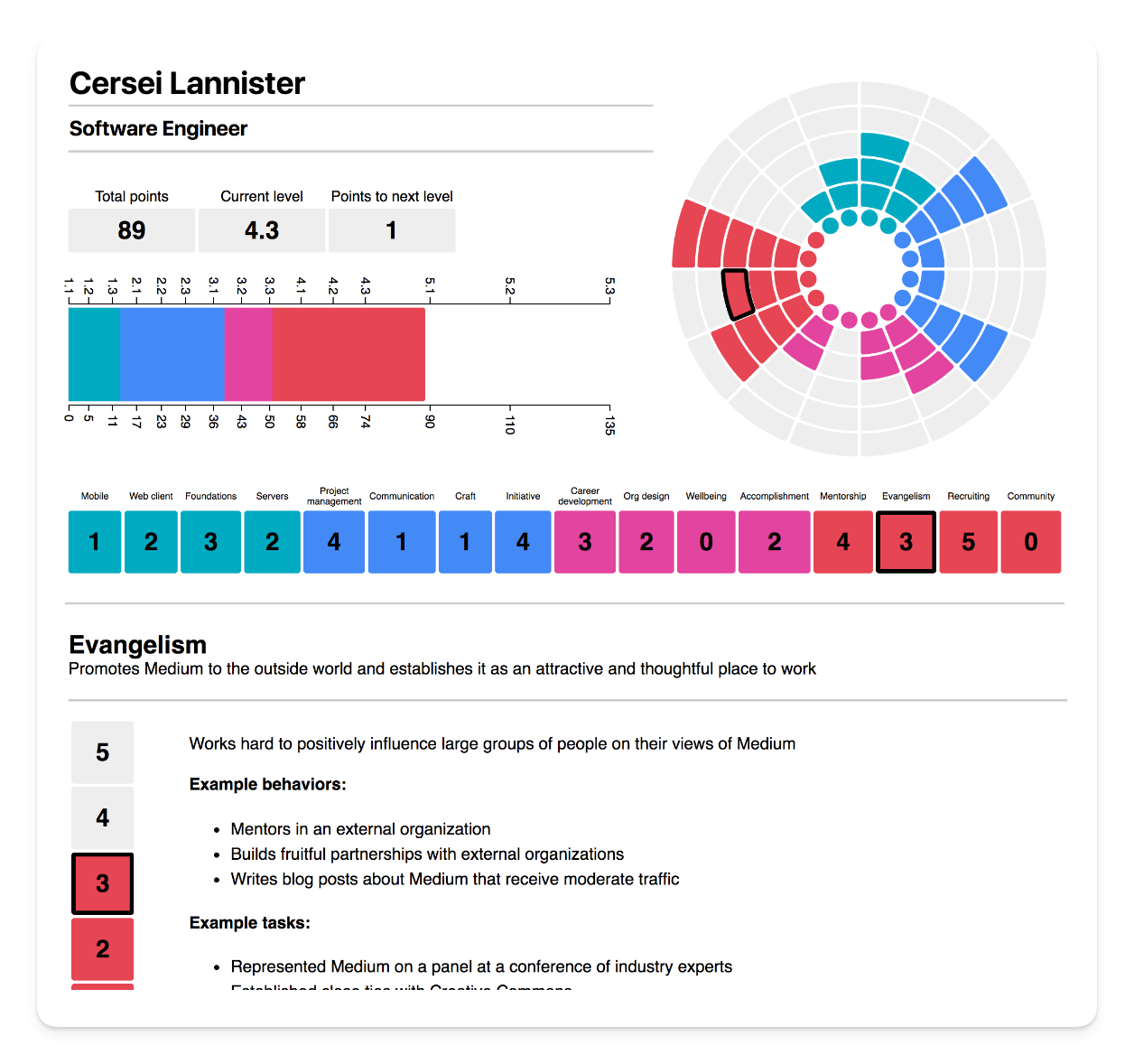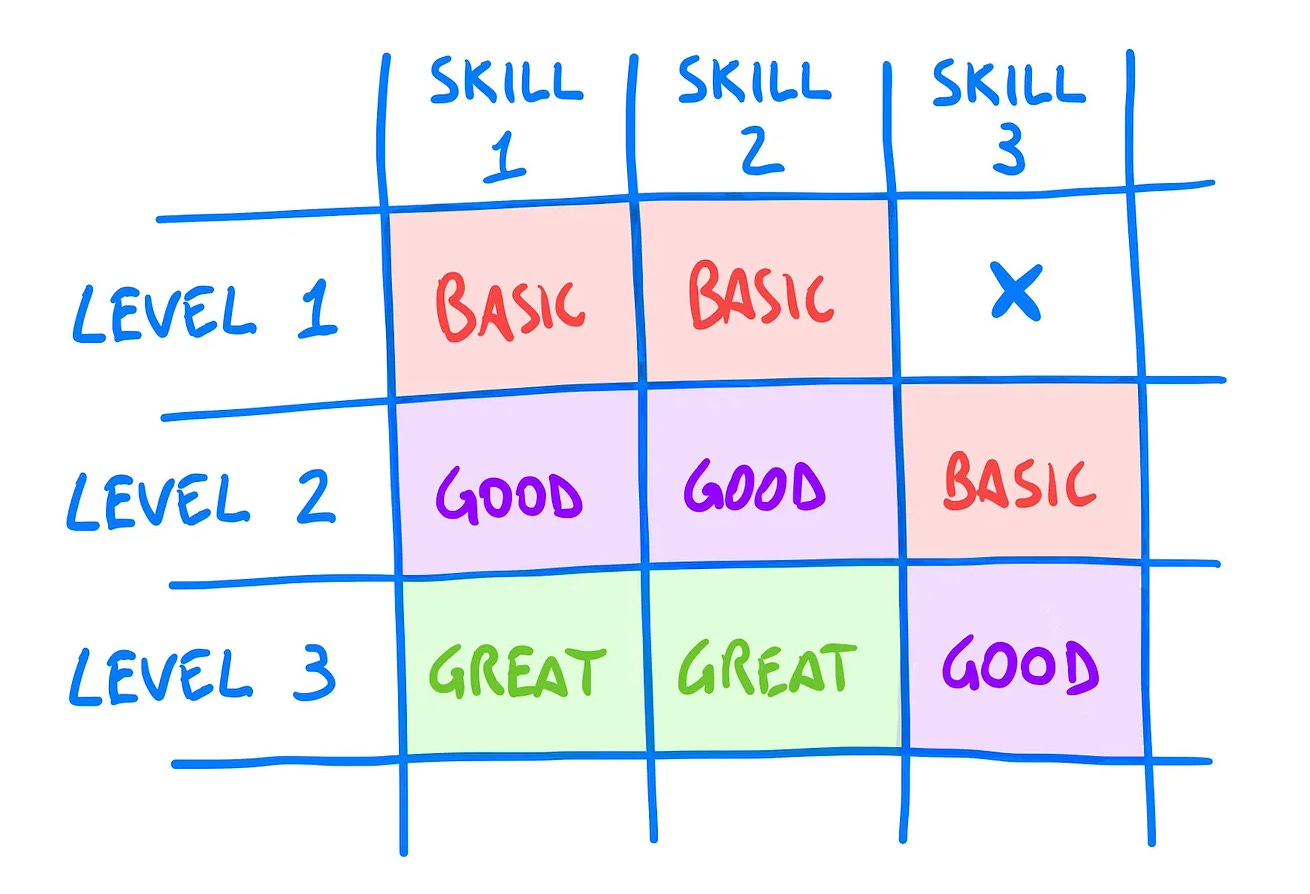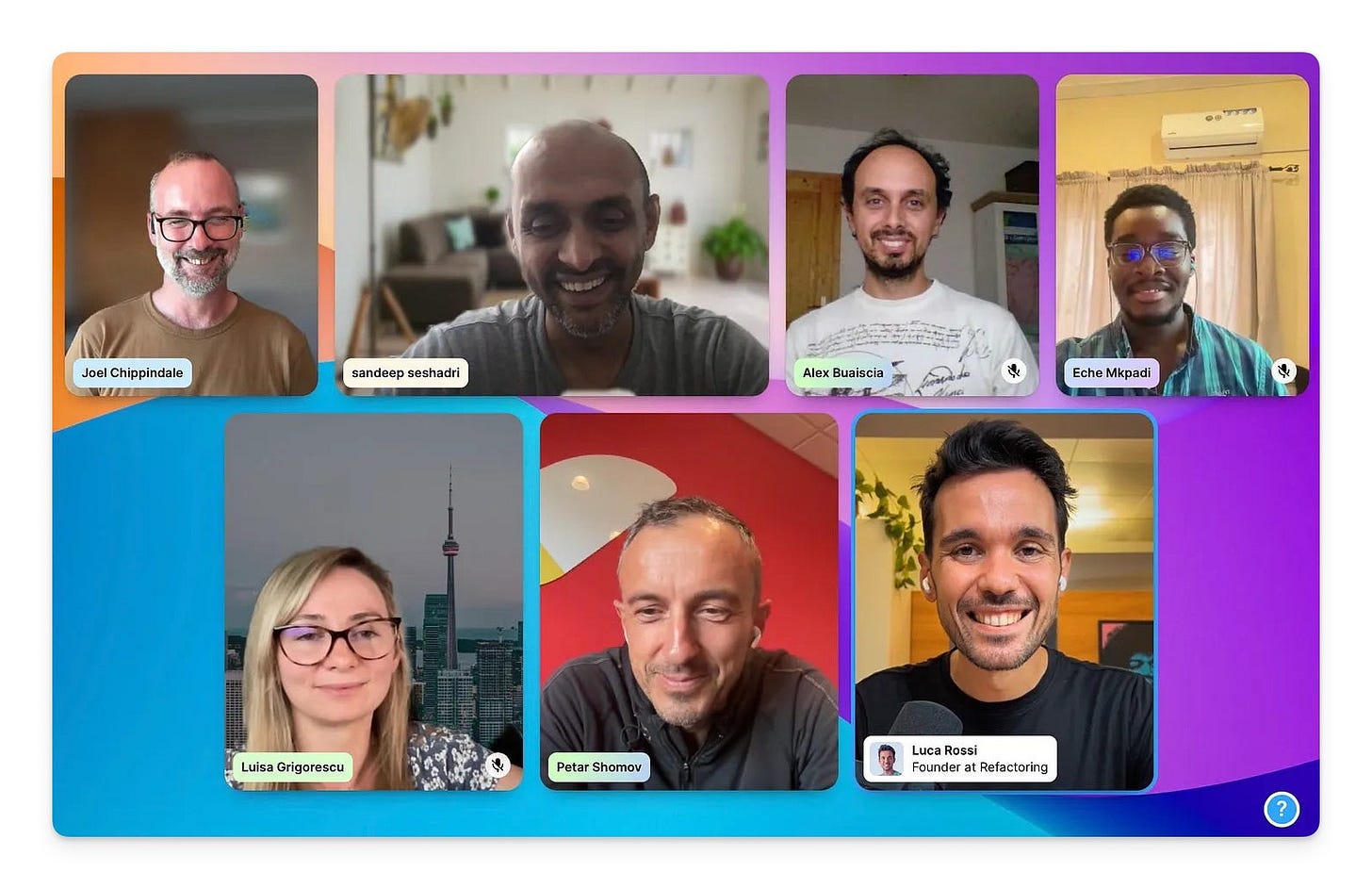🗳️ Answer our 5-min survey and win a $150 membership!
As anticipated last week, we are running a big survey about how engineering teams use data and metrics to improve their practices. We will create a deep industry report about it, that will go out exclusively in the newsletter!
You can participate below 👇
The best insights will be quoted in the final report. We are also giving away 20 paid memberships for free ($150 each!) 🎁 to people who answer the survey! We will draw the winners next month as soon as the survey closes.
Back to this week’s ideas 👇
1) 🎯 Tell everyone your goals
One counterintuitive idea that helped me a lot with my relationships — both work and life — is to be very open about my goals.
From big life goals down to what I want to accomplish next month.
I have found that when people know what your goals are, something incredible happens... they help you with them!
So if the first step is telling people directly, the next one is to write down your goals, even publicly — like on your blog, social media or whatever.
The more people know about them, the more chances you have of getting help and making friends.
Of course, I am more sensitive to this now that I am a content creator, but this works just as well in your workplace, with your manager, your peers, and people you work with.
I wrote a lot of hard-won lessons about networking and creating good relationships in this piece 👇
2) 🪜 Career frameworks are created gradually
There is a lot of confusion around career frameworks — I believe because the best examples we have are from big companies: many levels, many tracks, and many skills.
As a small-to-mid-size company, do you need the same framework as e.g. Airbnb? Of course not.
Career frameworks are living artifacts that grow with your team. Just like software abstractions, you shouldn’t create premature complexity nor plan for a future that is too far ahead.

So, the level of sophistication should match that of the problems you want to solve right now, and not much more:
In a team of 5 people, expectations are probably the same for everybody, and alignment means just writing down a few engineering principles.
In a team of 10-15, you may get away with creating 2-3 simple levels, with descriptions of a couple of paragraphs each.
As soon as you have managers or leadership roles, you may identify a few core skills and write down the different expectations for the various jobs.
In a large organization, you may try a more granular assessment of your people’s skills to help with internal mobility and the deeper career tracks.
I wrote a two-part series about creating and rolling out career frameworks. You can find the first part below 👇
3) 📚 I fixed my reading thanks to incentives
About a year and a half ago we started a Book Club in the Refactoring community.
In the club, we pick a book every two months, read it on our own, and discuss it all together in a live community call at the end of the period.
Half of the books I read last year came from it: Trillion Dollar Coach, Team Topologies, Good Strategy / Bad Strategy, No Rules Rules, Atomic Habits, An Elegant Puzzle.
The book club gave me two things:
Strong accountability — reading books is now literally part of my job. Book reviews also become newsletter articles, so there is no way I can give up on this.
Easy selection — for a long time I had a messy backlog of books I wanted to read, and choosing the next one always felt like a chore. The book club has a board where people can upvote entries, so every time we just pick the most voted one. Easy peasy.
The book club activity compounded nicely (and unexpectedly!) with another facet of my life: my wife has always been a big reader. She keeps a book by her bed, and always reads a few pages before sleep.
So I started doing the same, replacing the endless scrolling and the (bad) blitz games on chess.com.
After a while, this led to another surprise: my wife and I started talking about the books we were respectively reading. She had always told me about her books, but the fact that now I, too, was reading something, created more common ground and led to more interesting conversations.
It’s like another mini book club, even if we read different things.
So, reading for me has become an incredibly high leverage activity:
🎓 Learning — it makes me learn new things.
💬 Community — it makes the Refactoring community better.
✏️ Writing — it gives me things to write about in the newsletter.
🏡 Family — it even improves the relationship with my wife.
The lesson I learned here is to always try to create flywheels and synergies so that 1+1=3.
If you have a habit you are trying to adopt and you are struggling with it, think of how you can get more value out of it. Can you do it with your friends & family? Can you make it useful for something else?
I wrote a full piece this summer about why and how I read books, which became super popular 👇
And that’s it for today! If you are finding this newsletter valuable, consider doing any of these:
1) 🔒 Subscribe to the full version — if you aren’t already, consider becoming a paid subscriber. 1500+ engineers and managers have joined already! Learn more about the benefits of the paid plan here.
2) 🍻 Read with your friends — Refactoring lives thanks to word of mouth. Share the article with your with someone who would like it, and get a free membership through the new referral program.
I wish you a great week! ☀️
Luca






Telling everyone your goals is great advice, and it worked out very well for me in the past years. Even now, letting my manager know about my goals means they can provide advice, guidance, etc